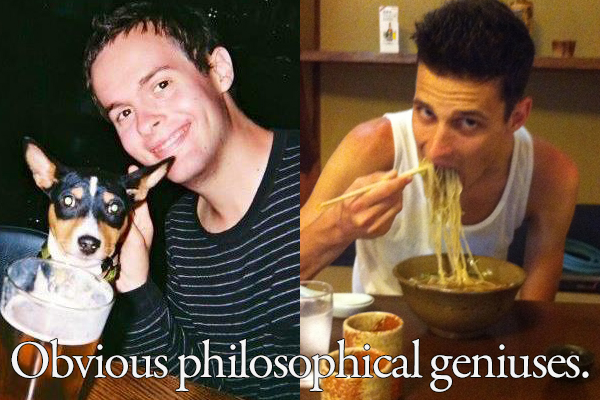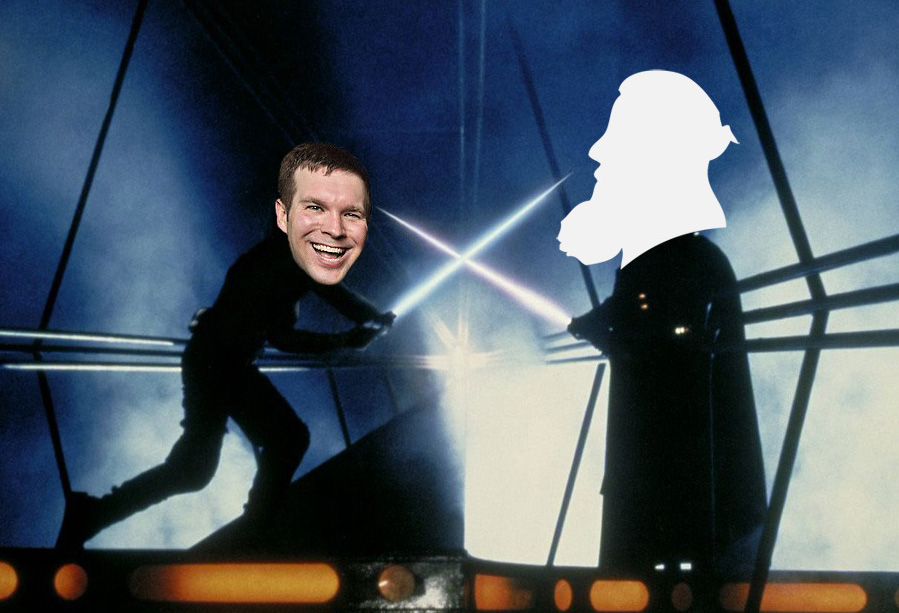We Got Sick of Theory and Talked About That

Between July 9th and August 5th , Alec Niedenthal and I had a long & blabby conversation that began when Alec enthusiastically responded to me saying “I’m almost completely gagged now by fucks like Deleuze.” Knowing Alec mostly as a fellow young philosophy & theory head, I asked after his newfound disillusionment with the stuff.
That conversation posted here—mostly unedited—in hopes you find it useful or rousing.
Ken: What literature strikes you as bullshit now?
Alec: Your question is great, but I’m not sure that I’m equipped to answer it. I’ll explain why. First, I’m not sure how possible it is today to talk about what sort of art is valueless, ie bullshit, when the role of art is so unclear and, less evidently but no less significantly, when we as avant-garde writers are unsure whether there should be an institution called “Art” any longer. That’s to say, it’s hard to even talk about what literature should be doing when the “should”-level claim about literature in general—basically, what it ought to depict and how to depict it—is supposed to be. READ MORE >
The Beginner’s Guide to Hegel

Jesse Hudson, one of the most monastic and scholarly people I know, started talking about Hegel on Facebook. Hegel’s work has always felt intimidating to me, and often when I read his writing, I think that he’s totally full of shit—that he took simple, intuitive ideas and hyperinflated their elucidation to appear logically rigorous and philosophically masterful. Basically, I got thinking that Hegel was a damned charlatan.
But I also knew that Jesse deeply responded to Hegel’s philosophy. So I asked him some questions for the Hegel-averse and uninitiated, following the format of The Beginner’s Guide to Deleuze with Christopher Higgs. Here we go:
Why should we read Hegel?
Hegel is fucking difficult, right?
In order to proclaim the importance of reading Hegel, the initial hurdle to overcome is the impression one initially has in regards to the supposed difficulty (or, stated more extremely, incomprehensibility) of Hegel’s texts. This isn’t necessarily a misinformed opinion of Hegel since, without doubt, Hegel’s texts are extraordinarily rigorous and densely packed. It isn’t uncommon to spend hours (or hours and hours over the span of several days) unpacking a mere page or two of his Phenomenology or Logic. This is due, in large part, to the fact that Hegel (like, it must be admitted, any other philosopher) writes with his own peculiar terminology. Derrida has differance; Deleuze has rhizome; Hegel has being-for-self, negation of the negation, positing presuppositions, ‘sublation’, being-in-and-for-self, etc. Hence, reading Hegel involves a great deal of work that is not unlike the work involved in learning a new language. But, to paraphrase Derrida, you wouldn’t necessarily decry the difficulty of a thermonuclear physics text or a text discussing the subtleties of semiotics and differential calculus. Therefore, the cries of anger and frustration seem a bit odd when directed towards philosophy (texts that are undoubtedly as theoretical and ‘specialized’ as the previous examples). READ MORE >
Favorite Passages from Deleuze & Guattari’s What Is Philosophy? (In Chronological Order)
To criticize is only to establish that a concept vanishes when it is thrust into a new milieu, losing some of its components, or acquiring others that transform it. But those who criticize without creating, those who are content to defend the vanished concept without being able to give it the forces it needs to return to life, are the plague of philosophy.
There is such force in those unhinged works of Hölderlin, Kleist, Rimbaud, Mallarmé, Kafka, Michaux, Pessoa, Artaud, and many English and American novelists, from Melville to Lawrence or Miller, in which the reader discovers admiringly that they have written the novel of Spinozism. To be sure, they do not produce a syntheses of art and philosophy. They branch out and do not stop branching out. They are hybrid geniuses who neither erase nor cover over differences in kind, but, on the contrary, use all the resources of their “athleticism” to install themselves within this very difference, like acrobats torn apart in a perpetual show of strength.
If philosophy is paradoxical by nature, this is not because it sides with the least plausible opinion or because it maintains contradictory opinions but rather because it uses sentences of a standard language to express something that does not belong to the order of opinion or even of the proposition.
Philosophy thus lives in a permanent crisis. The plane takes effect through shocks, concepts proceed in bursts, and personae by spasms.
We do not lack communcation. On the contrary, we have too much of it. We lack creation. We lack resistance to the present. READ MORE >
James Pate at Montevidayo says some really precise stuff about chaos and art, ending with this (YES): “With both–and with Grosz too, I would say– we’re left with an aesthetic that I like to think of as the abandoned house approach to art. You go in and wander around, but no one lives there anymore.”
Sartre v. the Bombing of Billancourt

“Deleuze devoured Being and Nothingness over the course of the week, and on Sunday, he and Michel Tournier went to the Sarah Bernhardt Theater to see a production of Sartre’s The Flies. They were forced to leave the theater when a bomb alert sounded, but while the crowd rushed to the underground bomb shelter, the two friends decided to ignore the warning and enjoy the lovely sunny afternoon.
‘We strolled along the quays in a totally deserted Paris. The city was completely empty. Night in mid-day. Then the bombs began raining down. The RAF was targeting the Renault factories in Billancourt. . . . We have nothing to say about this mediocre event. We were only concerned with Orestes and Jupiter struggling with the “flies.” The sirens sounded, the bomb alert was over a half hour later, and we returned to the theater. The curtain rose. Jupiter-Dullin was there, shouting for a second time, “Young man, do not blame the gods.”‘”
– Francois Dosse, Gilles Deleuze & Felix Guattari: Intersecting Lives, pp. 93-94 (Columbia U. Press, 2010)
what is the relationship between your work and theory?
So yesterday I was doing some research to find out if anything has been written on the intersection of Deleuzian studies & Finnegans Wake. (Turns out, not much!) Anyway, I came across this public dialog between Jean-Michel Rabaté and Gregg Lambert called “The Future of Theory?” from 2002, occasioned by the publication of Rabaté’s book The Future of Theory.
Among other things, it got me thinking about the relationship between theory and creative writing. Do contemporary creative writers read theory, think about theory, use theory in their creative work? If so, how?

As an added bonus, here’s the intro to their conversation:
Lambert: To begin with I want to recall a line from Difference and Repetition, which forecasts a style of philosophy for the future, regarding what Deleuze describes as “a bearded Mona Lisa and a clean shaven Marx.” This line returned to me, Jean-Michel, as I read your account in The Future of Theory, particularly regarding your description of what you call “an hysterical Hegel.” Now, I always thought Marx was the hysterical one in relationship with Hegel, but here you seem to be saying something different. In the book there is a very dominant thesis that that Theory constantly risks becoming a little bit hysterical, or that its discourse itself is, in some way, hystericizing. Can you talk a bit about your use of the term “hysterical” with regard to the discourse of theory?
You can listen to the whole conversation here.

